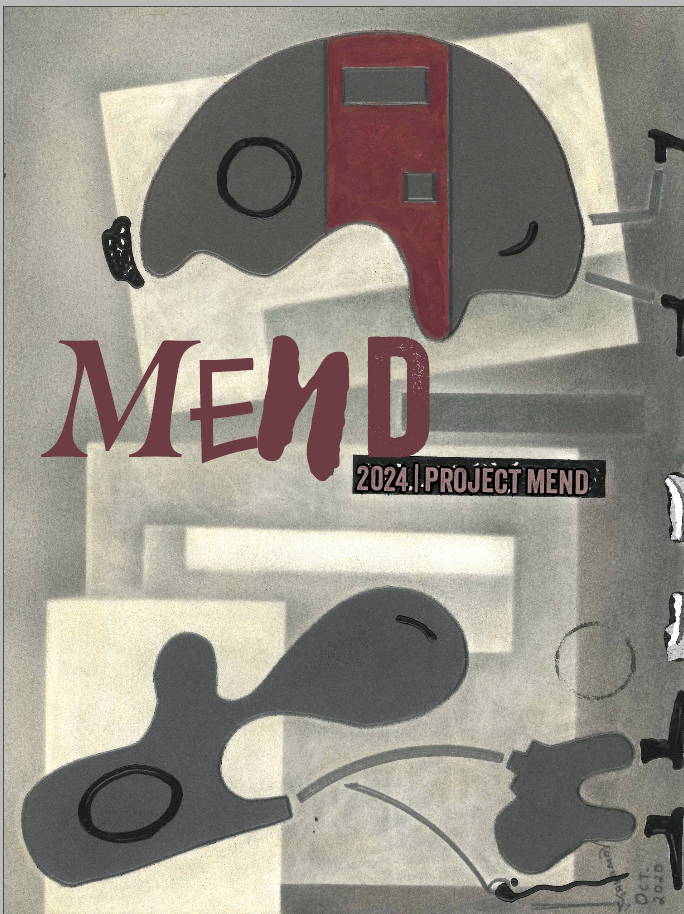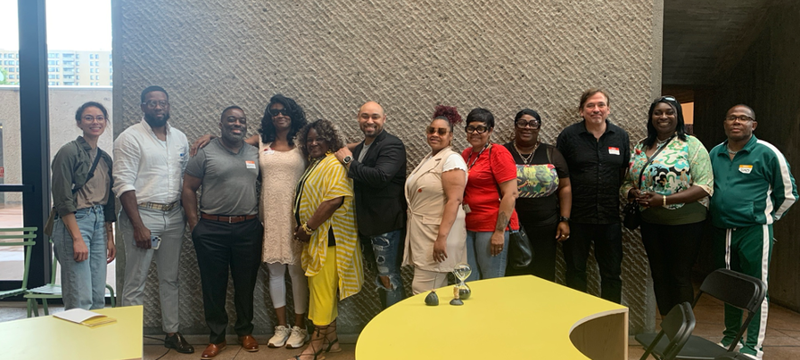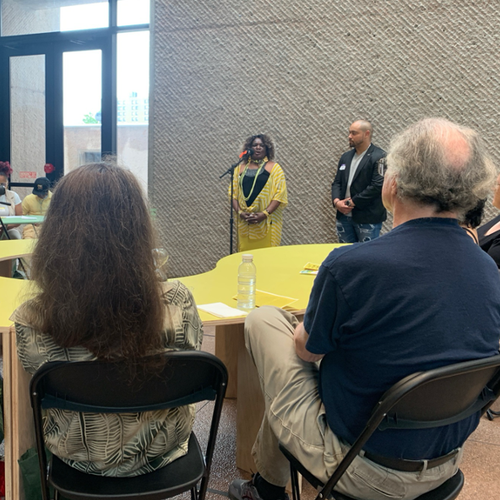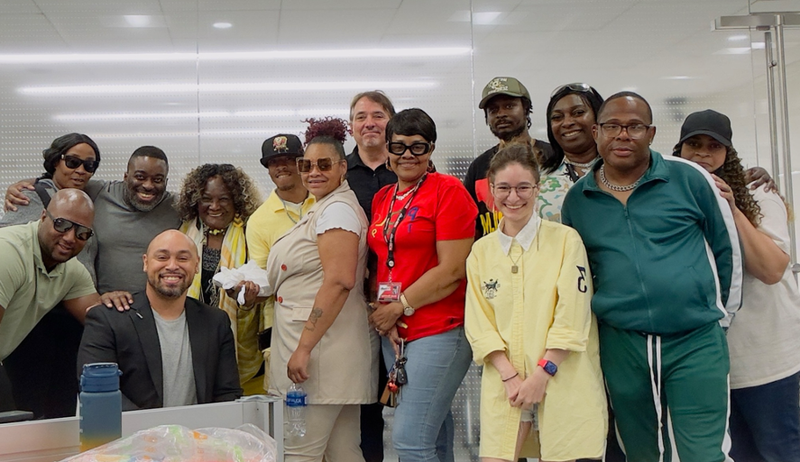
Editor's Note: The following article was written by Ilhy Gomez del Campo Rojas, a writing and rhetoric student in the College of Arts and Sciences and an editor of Mend, an online and print magazine of works by people impacted by the criminal justice system.
Our watches and phones tell us the time at any given moment, but time stopped at the Everson Museum of Art on June 6, 2024, when the museum hosted an event inspired by the DeepTime Collective, a collaboration between Amanda Leigh Evans and Tia Kramer called “A Day Without A Clock.” Project Mend was invited to the occasion to perform a live reading of poetry written by our very own editors and two special guests. The function inspired a community conversation about what time might mean without a conventional clock to tell us.

Mend team at the Everson Museum.
Upon entering the museum, guests, volunteers, and staff were requested to cover any clocks on their screens and their wrists. The museum was completely transformed to encourage attendees to rethink their perceptions of time and how it impacts our lives. At around 2:30 p.m., with sand and water timers documenting the passage of time, justice-impacted writers with Project Mend—an initiative led by writing and rhetoric professor Patrick W. Berry—reflected on time while doing time in the Sculpture Court.
José A. Pérez, a justice-impacted poet and actor blending artistry and activism, read three powerful poems surrounding themes of time, self, love, and loss. Following Pérez’s performance, Freddie Jackson, one of the editors for Project Mend’s publication, Mend, read his poem “Ball Up Your Fist,” which taught us to slow down and exist in the moment. Charlee Crosby reminded attendees that “It’s Not So Easy Speaking About Time,” and Maiya Hoston reflected on the time spent and lost with her father through “A Father Was Taken.” Mary Carr reminded us that time is special and only we can decide how to spend “Our Time.”
Finally, Marvin Wade, a gifted and accomplished writer who was released from prison in 2019 after serving 25 years and whose work has been featured in multiple publications including Mend, performed “Time and Prison: Are They Mutually Exclusive?” The piece described his experiences in prison and how they impacted his understanding of time. Wade, alongside Pérez, was invited to a special lunchtime conversation about time with nine other participants before the reading took place, where the two offered their insight on time and what it means to someone post incarceration.
Gabby Wilson, a doctoral student in Composition and Cultural Rhetoric who introduced the speakers, found it moving to see Mend editors and friends perform poems on which they had worked diligently. “They did a phenomenal job. It was such an embodied experience to listen to the poems and watch the timekeeping performers move throughout the museum,” she said.

Each reading captivated the audience and encouraged those listening to reconsider how they framed their concept of the passage of time, what it means to take our time, and how to take time back. “I was excited to be able to do something like that, and it made me feel like I have achieved some of the things I’ve always wanted,” said Mary Carr. She shared how proud she felt being able to read her work out loud and her happiness at being able to show support and love for her community: “It doesn’t take a whole book to make you feel like you’re a part of something. Sometimes [it’s] just a little push in the right direction...somebody giving you some kind of positive insight on what you’re doing to make you keep going.”
With Pérez’s guidance, Mend editors and friends gathered on the Syracuse campus, where the group brainstormed words related to power and resistance and considered the mentors who had left a strong impression on them over time. We honored the people who had come and gone in our lives including family members, teachers, and friends, through poetry, choosing one of three styles taught by Pérez. There were moments of lightheartedness, with spaghetti receiving its own ode from Mend editor Michael J. Willacy. We were able to take pride in ourselves and the people who had touched our lives and reflect on how we had evolved over time while thinking of the things that made us most grateful.

The Mend team at a workshop at Bird Library.
These events are made possible through collaboration with the Center for Community Alternatives and from an HNY Post-Incarceration Humanities Partnership, which is generously supported by the Mellon Foundation. Additionally, the project has been supported at Syracuse University by the Engaged Humanities Network, the Humanities Center, the SOURCE, the Department of Writing Studies, Rhetoric, and Composition, and a CUSE Research Grant.
